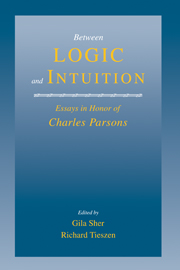Book contents
Frege, the Natural Numbers, and Natural Kinds
Published online by Cambridge University Press: 02 December 2009
Summary
Philosophers identify Frege with the doctrine that arithmetic truths are “analytic.” But Frege's main goal, as many now realize, was mathematical: to show that the truths of arithmetic are provable, against many who denied this, each for a different reason. Mathematicians had by Frege's time shown that analysis could be grounded in what we would today call second-order arithmetic: arithmetic plus “logic” Frege's goal was to remove the dependence on arithmetic by beefing up the “logic.”
This observation explains what otherwise seems a puzzling digression in the Grundlagen. At Grundlagen §10, Frege suddenly considers the question of whether the laws of arithmetic might not be “inductive truths,” that is, established nondeductively by verifying particular cases. This question is not reducible to the question of whether mathematics is “analytic” in Kant's (or even Frege's) sense. Nor is Frege concerned here, as he is elsewhere, with the more specific claim of John Stuart Mill that arithmetic is empirical. Even if arithmetic is non-empirical, even if it is analytic, it might still be inductive – a possibility that few great philosophers had considered, but that could not escape a mathematician.
Frege's reply is:
[H]ere there is none of that uniformity, which in other fields can give the method [of induction] a high degree of reliability. Leibniz recognized this already: for to his Philalèthe, who had asserted that “the several modes of number are not capable of any other difference but more or less; which is why they are simple modes, like those of space,” he returns the answer: “That can be said of time and of the straight line, but certainly not of the figures and still less of the numbers, which are not merely different in magnitude, but also dissimilar. […]
- Type
- Chapter
- Information
- Between Logic and IntuitionEssays in Honor of Charles Parsons, pp. 291 - 298Publisher: Cambridge University PressPrint publication year: 2000
- 1
- Cited by



